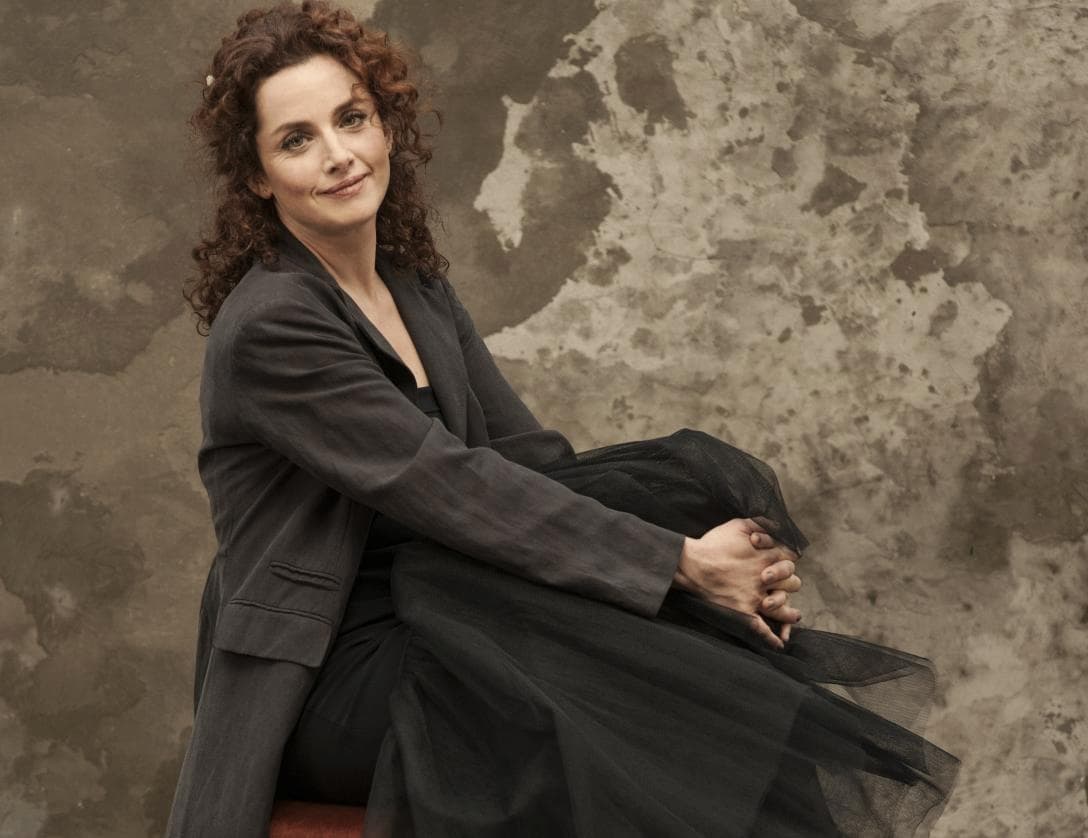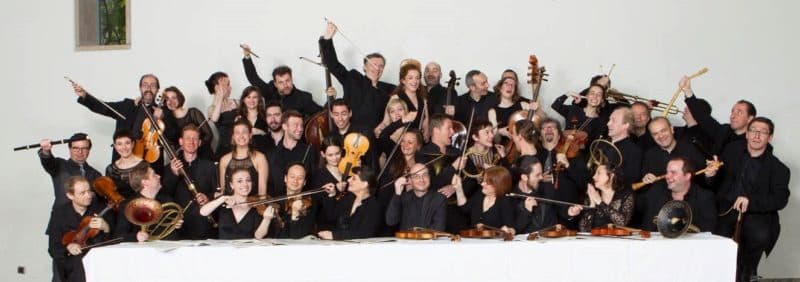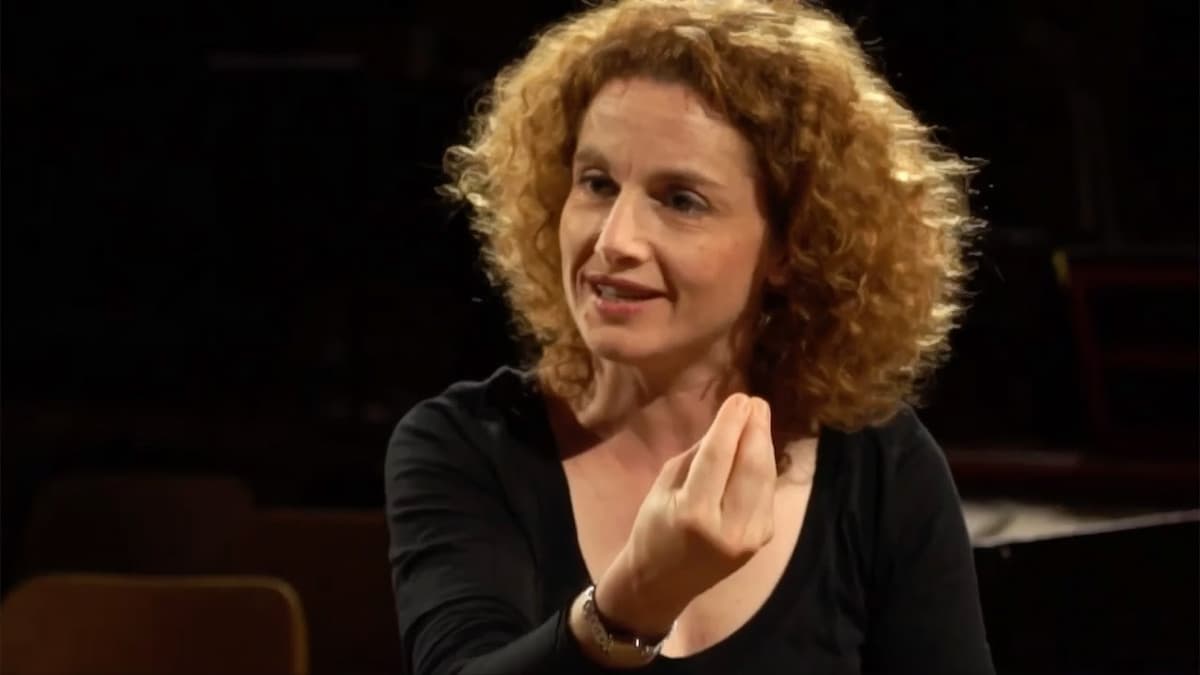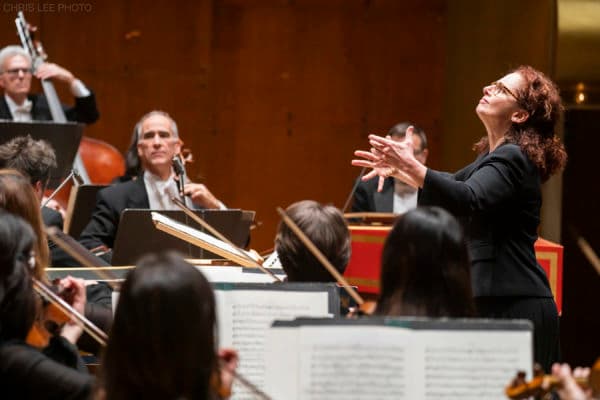The English press has affectionately dubbed Emmanuelle Haïm “The Ms Dynamite of the French Baroque.” Born on 11 May 1962 in Paris, she grew up in a highly musical household. Her father’s family hailed from Istanbul, and all of them were musicians. Her aunt was a pianist, and there was a long line of musicians in her mother’s family as well. Emmanuelle started piano lessons at an early age, and when her mother remarried, a large number of exceptional musicians visited the household, including the famed pianist Zoltán Kocsis.

Emmanuelle Haïm © Marianne Rosenstiehl
Emmanuelle knew from a very young age that she wanted to be a musician. “I couldn’t imagine anything else,” she once explained. Haïm enrolled at the Conservatoire Supérieur de Musique et de Danse in Paris, where she initially studied organ with André Isoir. However, she soon discovered her love for the harpsichord and intuitively knew, that this would become her specialization.
Emmanuelle Haïm Conducts Handel’s Julius Ceasar, “Overture’
Haïm studied with Kenneth Gilbert and Christophe Rousset, and she was awarded a number of first prizes at the Conservatoire. She also started playing continuo for William Christie and his ensemble “Les Arts Florissants,” and for Christophe Rousset’s “Les Talens Lyriques.”

Le Concert d’Astrée
Haïm met conductors René Jacobs and Marc Minkowski, and she was accompanying and teaching baroque singing classes at the Paris Conservatoire. “I learned enormously from those conductors about the way they made things happen, how you do an opera, how you research the music,” she explains. Haïm discovered the French Baroque, the German Baroque, the English 17th century, “and I went into production and discovered the world of opera, and adored the feeling of that. So, I learned and learned, and gradually it became quite clear to me that I needed to grow up.” It seemed inevitable that Haïm would eventually found her own baroque music ensemble, and in 2000 “Le Concert d’Astrée” was born.
Henry Purcell: Dido and Aeneas, Z. 626 – Overture (Le Concert d’Astrée; Emmanuelle Haïm, cond.)
Henry Purcell: Dido and Aeneas, Z. 626 – Act I: Ah! Belinda, I am press’d with torment (Susan Graham, mezzo-soprano; Le Concert d’Astrée; Emmanuelle Haïm, cond.)

Emmanuelle Haïm
“It was not a specific mission, but we were a third-generation early-music movement, and I think there was a new and different energy in the air. I had people around me with the same way of thinking as me, and I just wanted to do it.” The ensemble grew quickly in size and reputation, and they soon compiled an extensive discography. However, Haïm also pursued an independent career by guest-conducting baroque music with modern-instrument orchestras. Her performance of Handel’s Rodelinda for Glyndebourne Touring Opera in 2001 “combined stylistic authority with convincing ease of expression.” Haïm has since been in demand from modern orchestras around the world, and she achieved stylish results with orchestras used to playing Mahler and Berlioz. A reviewer in Los Angeles declared, “she made Purcell, Handel and Pergolesi sound new-born.” Although there are natural limits to what can be achieved with modern instruments, especially with the differences in technical set-up, pitch and balance that affect them, “in the end it comes quite naturally,” according to Haïm.
Jean-Philippe Rameau: Les Indes galantes: Les sauvages – Danse du Calumet de la paix et duo forets paisibles (Natalie Dessay, soprano; Stéphane Degout, baritone; Le Concert d’Astrée; Emmanuelle Haïm, cond.)

Emmanuelle Haïm conducting the New York Philharmonic, 2018 © Chris Lee
Haïm has been steadfast in her devotion to baroque music, and she has resisted the temptation to explore later repertoire. “As a child,” she explained in an interview, “I always wanted to do a lot of Bach. I loved the emotion, the sensitivity, and the super-elaborate, crazy construction of baroque music so much that I had to switch to organ and harpsichord for the sheer physical sensation of it. Then I discovered the musicological part of it, the harmony, the counterpoint, and I loved that too. The harpsichord can be part of an orchestra, not lonely like the piano or organ. I didn’t want to be alone, I wanted to be in a group, be in an orchestra! I liked that baroque music doesn’t really say on the page what it should be like, that there are little unwritten beauties that you have to grab from the special language of the music itself, to come up with the answers yourself and play freely. I loved the baroque theatrical world, and I loved the sounds the instruments made as well. And there is still such a massive quantity of this music that I don’t even know yet! I adore Schubert and Ravel, and I can’t be without them. But I think they can live without me.”
For more of the best in classical music, sign up to our E-Newsletter
Emmanuelle Haïm and Le Concert d’Astrée Perform Bach
